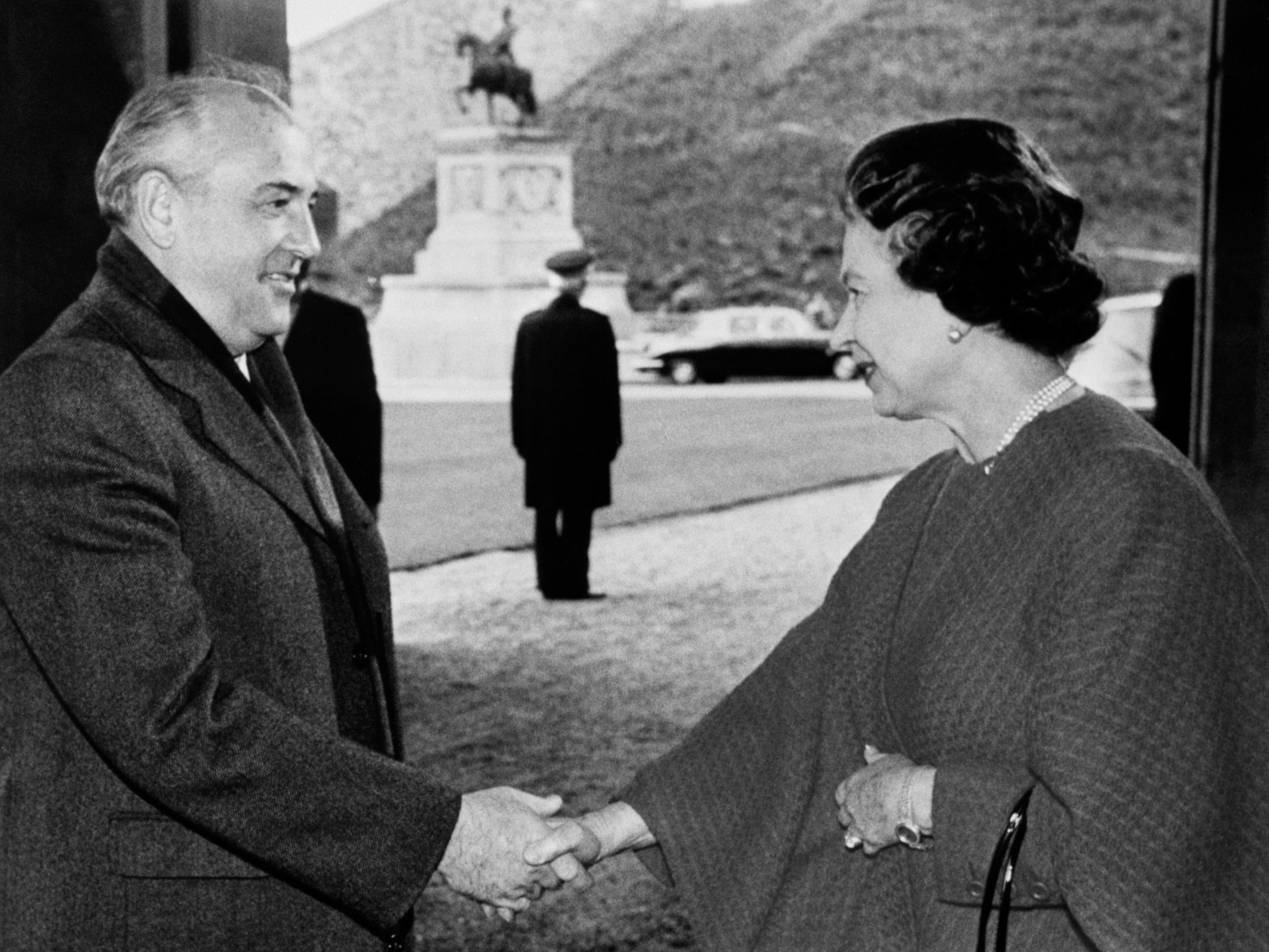In Pictures: Man who helped end the Cold War was feted in the west
The lifelong communist took the reins at a tense time in the Cold War but eventually presided over the demise of the Soviet Union.

Your support helps us to tell the story
From reproductive rights to climate change to Big Tech, The Independent is on the ground when the story is developing. Whether it's investigating the financials of Elon Musk's pro-Trump PAC or producing our latest documentary, 'The A Word', which shines a light on the American women fighting for reproductive rights, we know how important it is to parse out the facts from the messaging.
At such a critical moment in US history, we need reporters on the ground. Your donation allows us to keep sending journalists to speak to both sides of the story.
The Independent is trusted by Americans across the entire political spectrum. And unlike many other quality news outlets, we choose not to lock Americans out of our reporting and analysis with paywalls. We believe quality journalism should be available to everyone, paid for by those who can afford it.
Your support makes all the difference.The death of Mikhail Gorbachev marks the end of an era and comes at a time of renewed tensions between East and West.
When he acceded to power in the then Soviet Union, the superpower was at loggerheads with the West and branded by then US president Ronald Reagan as the Evil Empire.
However, the media-friendly Mr Gorbachev surprised many with his smile and his desire to reform communism, with his buzzwords “glasnost” (openness) and “perestroika” (restructuring).
Mr Gorbachev had raised eyebrows before taking the top job in Moscow when he visited the West and met fierce anti-communist Margaret Thatcher.
The British prime minister surprised many by striking up a strong rapport with the man from the East and famously declaring after meeting him that, despite their political differences, he was a man she could do business with.
He also built a strong relationship with Mr Reagan who toned down his rhetoric as the relationship blossomed.
Feted in the West, not everyone in the USSR supported the reformist agenda and measures like a crackdown on vodka did not endear him while his wife Raisa’s penchant for wearing stylish clothes irked some in the less ostentatious communist era.
The Chernobyl disaster occurred on his watch but his willingness to reform, including agreeing to Mr Reagan’s demand to “tear down the wall” in Berlin endeared him to many.
A failed coup revealed his vulnerability but by the time he returned to Moscow he had already been replaced in the popularity stakes by Boris Yeltsin who had rallied opposition to the plotters while Mr Gorbachev was isolated in the Crimea.
The USSR splintered into 15 nations as Mr Gorbachev’s time in charged ended, and the red flag with the hammer and sickle was lowered for the the final time at the Kremlin to be replaced by the banner of the Russian Federation.